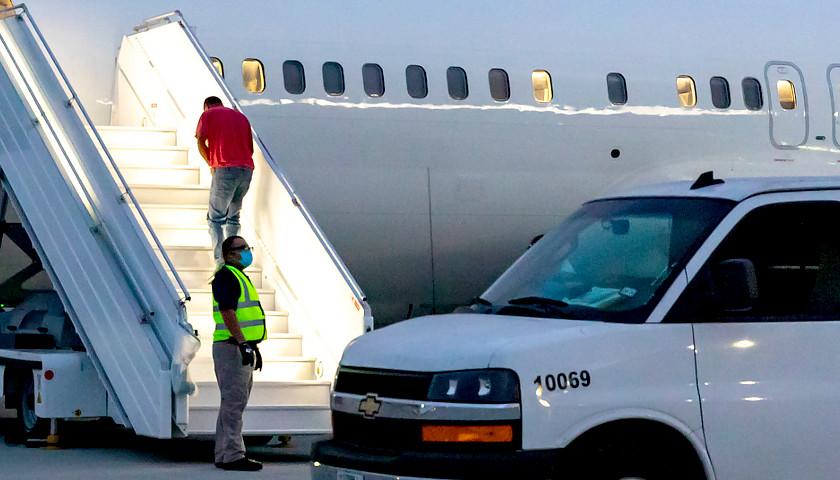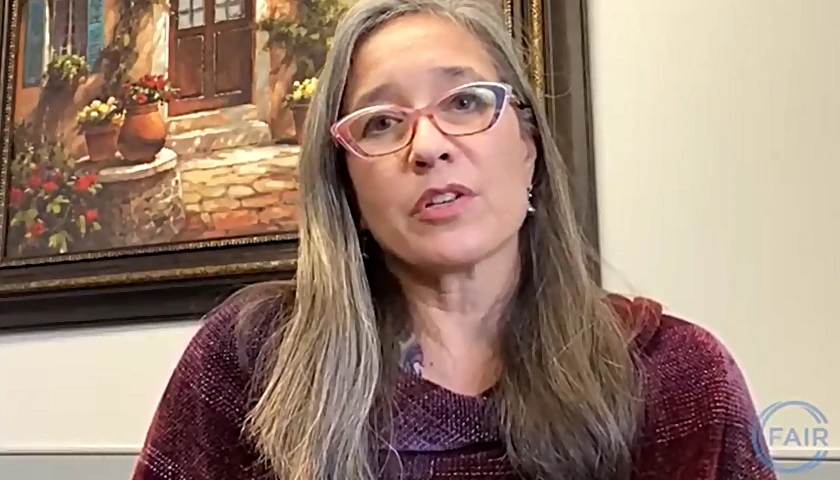by Jason Hopkins
Guatemala is reportedly open to helping President-elect Donald Trump with a key part of his mission to deport massive numbers of illegal migrants out of the United States.
The Guatemalan government is not opposed to receiving their own citizens and other Central Americans deported by the United States, according to several sources that spoke with Reuters. Such a move would likely be a major boon for the incoming Trump administration as Nicaragua and a number of other countries have been reluctant to take back their citizens who’ve been ordered removed from the U.S.
“There has to be a regional response,” a Guatemalan official told Reuters. “And we want to be part of the solution.”
 Trump, who won in an electoral landslide after campaigning on a hardline immigration enforcement platform, has promised to conduct the largest deportation operation in the country’s history. However, this pledge could be hindered by a number of logistical hurdles, one of which being that some major sources of illegal immigration are refusing to take their citizens back.
Trump, who won in an electoral landslide after campaigning on a hardline immigration enforcement platform, has promised to conduct the largest deportation operation in the country’s history. However, this pledge could be hindered by a number of logistical hurdles, one of which being that some major sources of illegal immigration are refusing to take their citizens back.
The number of recalcitrant countries — governments that refuse to accept or delay the repatriation of citizens ordered deported from the U.S. — has varied over the years, depending on sanctions imposed by Washington, D.C., and other factors. House Republicans in July identified 13 countries that are currently considered to be recalcitrant or uncooperative.
Foreign governments that refuse to take back their citizens have long frustrated federal immigration authorities in multiple administrations. In lieu of remaining in detention indefinitely, many of these illegal migrants may simply be released back into the U.S., even if an immigration judge has ordered them to be repatriated.
This is not a new problem for the Trump administration. Immediately into his first term, Trump imposed visa sanctions on several countries for refusing to accept their deported citizens. In the run-up to his second term, his inner circle has mulled different ideas on what to do with the sheer number of deportees from recalcitrant countries, including the possibility of sending them to islands in the Caribbean.
Under the Biden-Harris administration, federal immigration authorities and cities across the country experienced an unprecedented illegal immigration crisis. Management of this ordeal was made more difficult when Venezuela, the second-highest source of illegal immigration into the U.S., stopped accepting deportation flights in February.
Other major sources of illegal immigration have been refusing to cooperate with U.S. deportation operations, such as China, Haiti and Cuba. Nicaragua has also become uncooperative with Washington, D.C., as tensions over migrant smuggling and political repression have escalated.
However, the Guatemalan government — aiming for a more friendly relationship with the Trump White House — has already met with Trump transition members and Florida GOP Sen. Marco Rubio, who’s been nominated to be the next Secretary of State, according to Reuters. The Central American country is bracing to accept a large number of fellow countrymen next year.
“We aren’t ready for it, but we know it’s coming,” a Guatemalan government official said to Reuters.
– – –
Jason Hopkins is a reporter at Daily Caller News Foundation.



